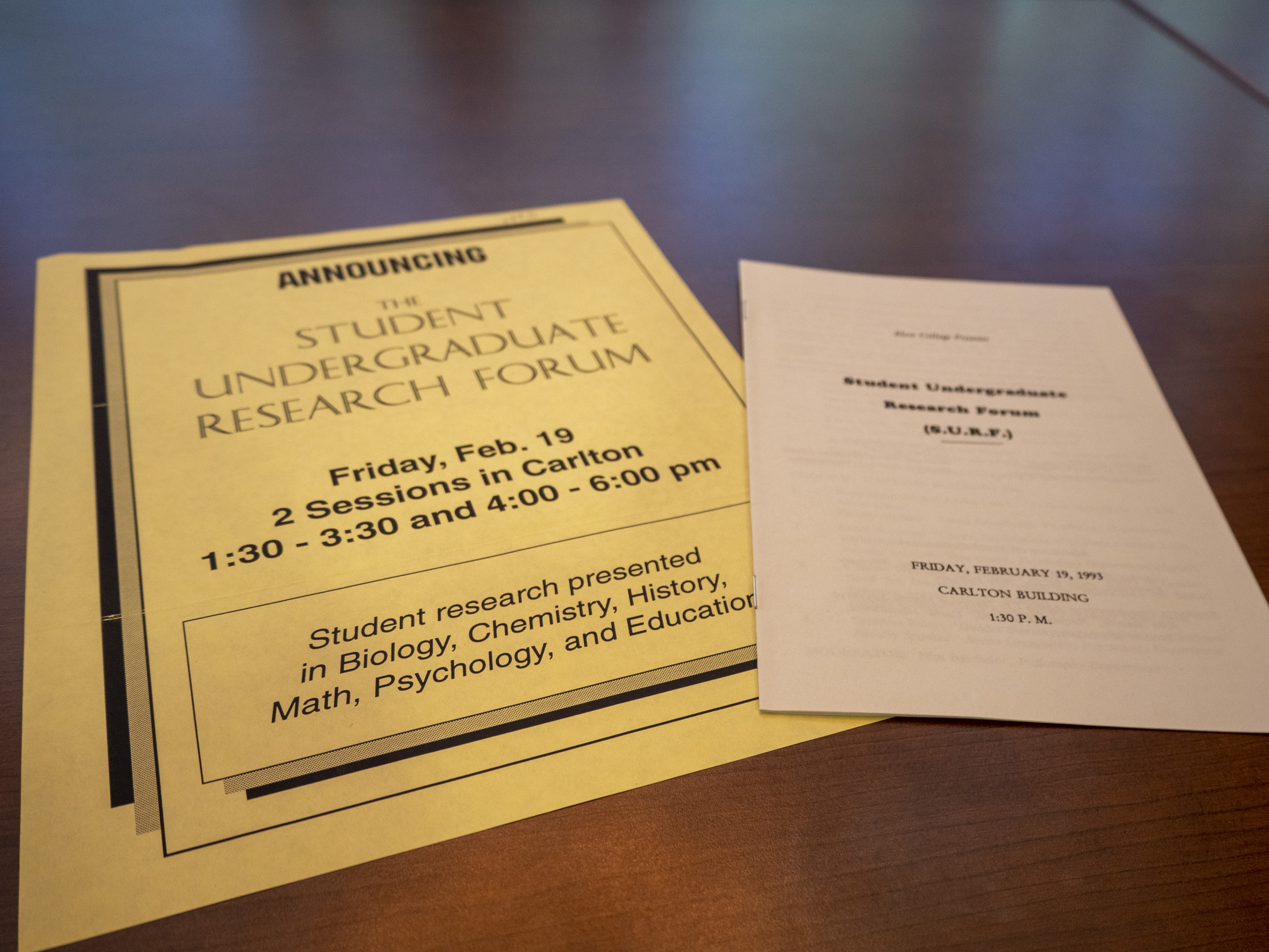This year marked the 30th anniversary of the first Spring Undergraduate Research Forum, Elon University's annual showcase of the work of undergraduate researchers and their mentors.
Elon’s Spring Undergraduate Research Forum, which started 30 years ago as a collection of fewer than 20 Elon students gathering to share their research with peers and mentors, has now grown to a day-long showcase of 270 presentations that each year attracts participants and an audience from across campus.
Undergraduate research has become an integrated and integral part of an Elon education, and this annual forum is its most visible manifestation each year. Elon is now recognized as a national leader in undergraduate research, and each annual SURF Day is larger than the one the year before.
So how did a small event involving students and faculty from a handful of disciplines become a national model for engaged undergraduate research? The Elon University News Bureau asked those who have helped lead the Undergraduate Research Program and helped foster the growth of SURF Day through the past three decades to share their thoughts and insights.
Kathy Lyday
Professor of English, former director of the Elon Honors Program
When I assumed the leadership of Elon’s Honors Program in 1991, one of the initiatives I sought to create was a platform for Honors students to present their research.
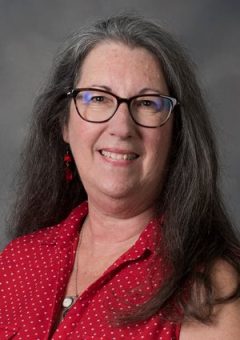
The idea for SURF was born in the fall of 1991, and in 1992 the Honors faculty and students were presented with the idea of presenting their research in the spring of 1993. The students seemed grateful for the opportunity, so I began enlisting help from the administration for the event. Dr. Rosalind Reichard, Dean of Science, and I collaborated on the event. Students suggested the acronym SURF (Student (now Spring) Undergraduate Research Forum) and several suggested logos — many of which, as you might imagine, involved a surfboard with lines like “Surf into research.”
One of our Honors students designed the first logo for the event, and the Honors departmental assistant, Edie Alexander, did the programs. It was a very low-key operation! Nineteen Honors students submitted research from a class of their choosing, preferably a disciplinary seminar, and 13 faculty members participated as mentors and moderators, most of them Honors faculty.
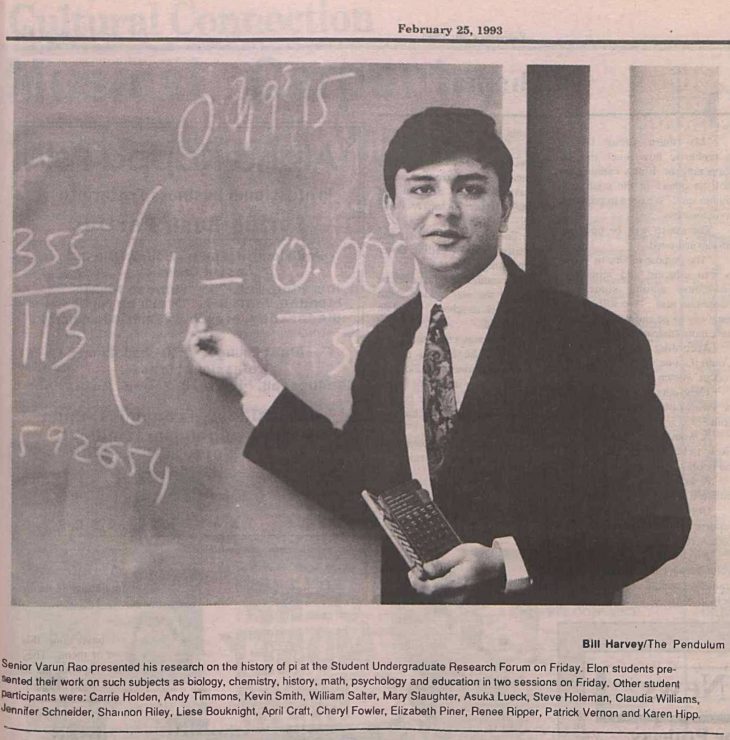 On a spring afternoon in Carlton, on a Friday after classes had ended, students presented their work to very small audiences, and SURF was born. Presentations did not run concurrently, so everyone got to hear everyone’s paper, and we had a nice dinner afterward for the students and the mentors.
On a spring afternoon in Carlton, on a Friday after classes had ended, students presented their work to very small audiences, and SURF was born. Presentations did not run concurrently, so everyone got to hear everyone’s paper, and we had a nice dinner afterward for the students and the mentors.
In 1995, Elon’s Undergraduate Research program was created, with its sibling, the Summer Undergraduate Research Experience (SURE), arriving in 1998. In 2006, SURF became a part of CELEBRATE! day, and classes were canceled so that the entire community could participate.
Since the original handful of students and faculty, hundreds (maybe thousands) of students have presented their research via posters or paper across Elon’s campus. Hundreds of faculty have participated as mentors and moderators, and for 30 years this day in April has become synonymous with research excellence and faculty mentoring and leadership at Elon University. Walking into the Great Hall and now the Alumni Gym and hearing the buzz of dozens of students explaining their research through a poster are special moments that make me swell with pride for the effort Elon has put into this event.
From a few 15-minute presentations with faculty responders, this event has grown into an event that gives students a real-world opportunity to present their research and prepare for a future that might include graduate research. In the beginning, SURF presenters came mainly from students in the Honors Program, but today, the presenters are not limited to Honors or Fellows program, or to an oral presentation. Students now have the option of presenting their research on a poster, in an oral/visual presentation, as a creative expression, and through panel discussions.
What has happened at Elon is truly amazing. One idea, with student, faculty, staff, and administration support, blossomed into a full-fledged research conference that involves the entire university community. Under the capable leadership of many, the undergraduate research program has given students multiple opportunities and travel grants to present their research at Elon and to attend international, national, and disciplinary conferences. At many institutions, this kind of opportunity is reserved for only graduate students, but Elon is leading the way for its students by giving them these important academic experiences outside of the classroom. I’m very pleased to have been a small part of it.
Maurice Levesque
Professor of Psychology, director of accreditation and assessment, and former director of the Undergraduate Research Program
In January 2000, I became the first faculty director of the Undergraduate Research Program. Up to that point, the program had been directed by a dean with an advisory committee of faculty.
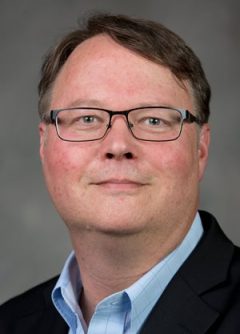
When I assumed the role, many of the basic programs we recognize today as part of what the undergraduate research program provides were in place, specifically, grants-in-aid to support research, travel grants, Summer Research Experiences, support for students to present their research at the National Conference on Undergraduate Research, and, of course, SURF. So there was a solid foundation and a core group of committed faculty. The major work of those early years was to increase participation in SURF, with special attention to increasing participation across academic departments.
Thanks to an amazing group of faculty serving on the Undergraduate Research Program Advisory Committee, SURF grew rather quickly in the early 2000s as students presented work done in classes as well as research conducted with faculty under what was then a new system of 499 independent research.
The diversity of disciplines represented also grew. From 2000 to 2004, the number of projects (and percentage) presented at SURF that were the result of independent research grew, supported by increased grant and summer funding. Put simply, undergraduate research was catching on across campus.
SURF was the campus showcase for the work accomplished by students mentored by faculty. My fondest memories of this time are of the students, their sense of pride in both accomplishing the work and presenting it to audiences of students and faculty.
Although many students were now presenting at regional and national disciplinary conferences, presenting at SURF remained an important goal for students and their mentors. During this time, the increasing quality of SURF presentations was also the best evidence for the need to increase funding and further expand undergraduate research opportunities.
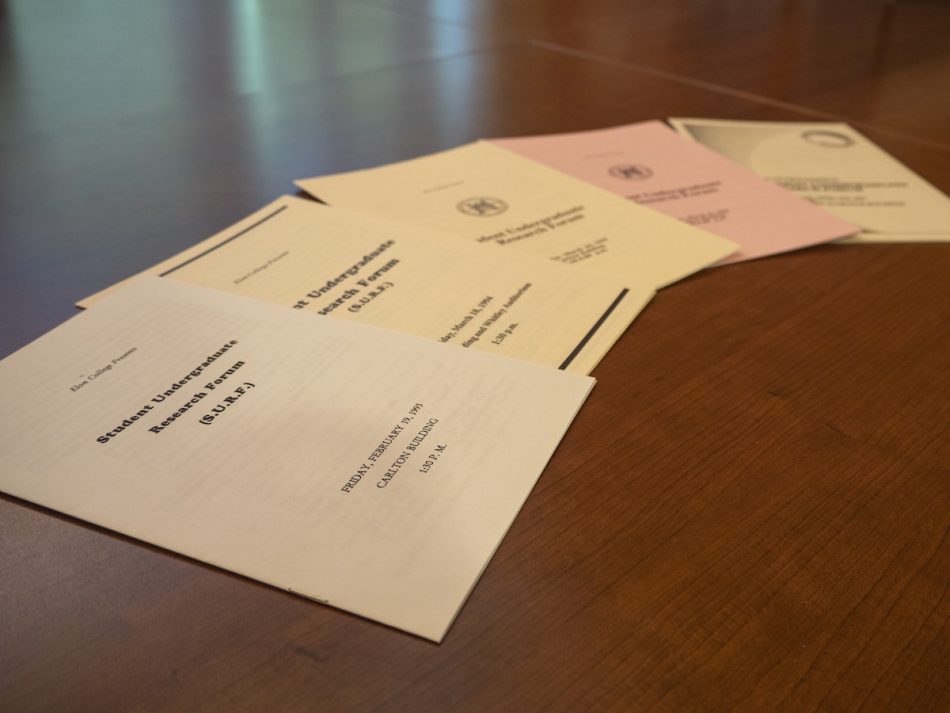
For me personally, SURF was a great teaching tool for students, especially those I was mentoring to present. For many students, oral presentations or talking in front of a poster about their work could be intimidating. I watched a lot of students gain the self-confidence to excel and give great presentations.
Also, as a relatively new faculty member, being involved in SURF as director of the program and as a mentor introduced me to many colleagues who have been amazing friends and supports over the years. The group of faculty who helped put SURF together gave generously of their time to support this important event.
The program has clearly grown under the leadership of various directors, but I think the essence of SURF remains the same – a day when the community can come together to celebrate our students’ intellectual pursuits.
Karl Sienerth
Professor of Chemistry and former director of the Undergraduate Research Program
When I came to Elon in 1998, undergraduate research was championed by Dr. Rosalind “Roz” Reichard, Dean of Math and Science, and was housed in her office on the first floor of McMichael.

Even 25 years ago, Elon was the envy of most of our peer and aspirant schools because we recognized the value of devoting a full day without classes to the celebration of undergraduate research in the form of SURF. At that time, SURF stood for “Student Undergraduate Research Forum.” SURF at that time was multidisciplinary, but I believe the majority of presentations were by students in STEM and social sciences.
In 2001, the Undergraduate Research Program was created and was placed under faculty leadership with Dr. Maurice Levesque named the inaugural faculty director of undergraduate research. Maurice only got one course release for this daunting task, but even with limited time and resources, he fashioned the true form of the URP as it exists to this day.
He created the URP Advisory Committee from a cadre of other brave souls who shared his vision of a program and SURF that spanned the campus. Maurice strove to ensure that all schools and departments were well-represented at SURF, and he lobbied tirelessly for additional funding for student research and travel support. It was under Maurice’s leadership that Elon achieved its most notable growth in stature as a national leader in how undergraduate research should be valued at PUIs (primarily undergraduate institutions).
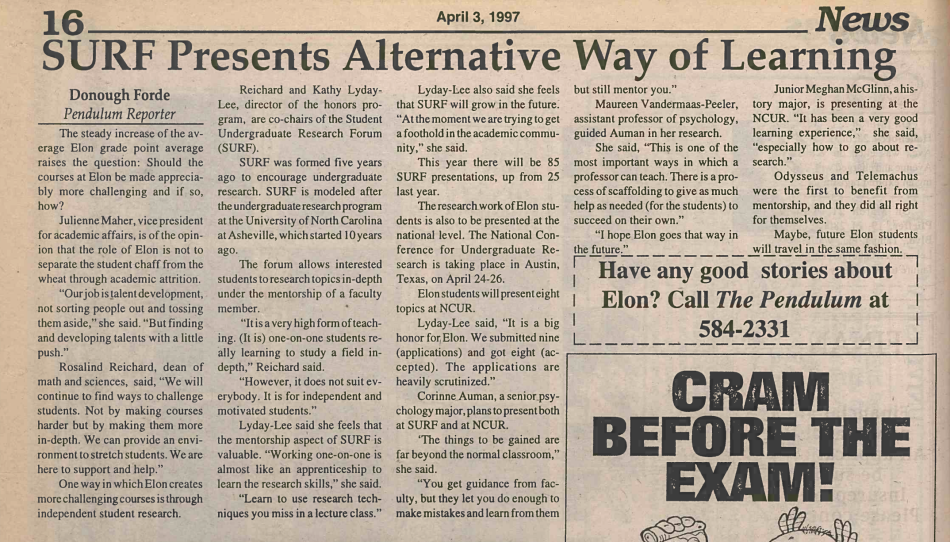
There is no present without a past. Maurice’s achievements would not have been possible without the hard work of people like Roz Reichard, Kathy Lyday, Mike Kingston and Jo Grimley. In a similar vein, while each successive director of undergraduate research after Maurice made their own important contributions, I believe the true genesis of the program came in 2001.
Paul Miller
Associate provost for academic excellence, professor of exercise science and former director of the Undergraduate Research Program
I attended my first SURF Day in 1998. It was a half-day long and only included oral presentations. These presentations were largely only attended by folks from that specific academic department.
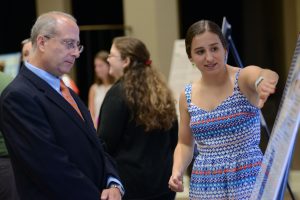
I remember a couple of years later when we added poster presentations, we only had a handful of those. There was only one poster session, and it was held in the Center for the Arts Concourse. My, how things have grown.
It is so rewarding to see how SURF Day has grown and matured. I love that we have presentations representing all of our academic departments and include a variety of presentation types. We have almost 300 students presenting at SURF now and it really amplifies our institutional commitment to impactful, engaged learning and mentored experiences.
Our students have such tremendous opportunities for deep, rich learning experiences, and I am so thankful for our dedicated and talented mentors that bring this experience to life. I love seeing the expression of accomplishment on the faces of our students after they present at SURF, and the expression of pride by our mentors knowing that they have successfully guided our students learning and have helped them achieve meaningful work.



